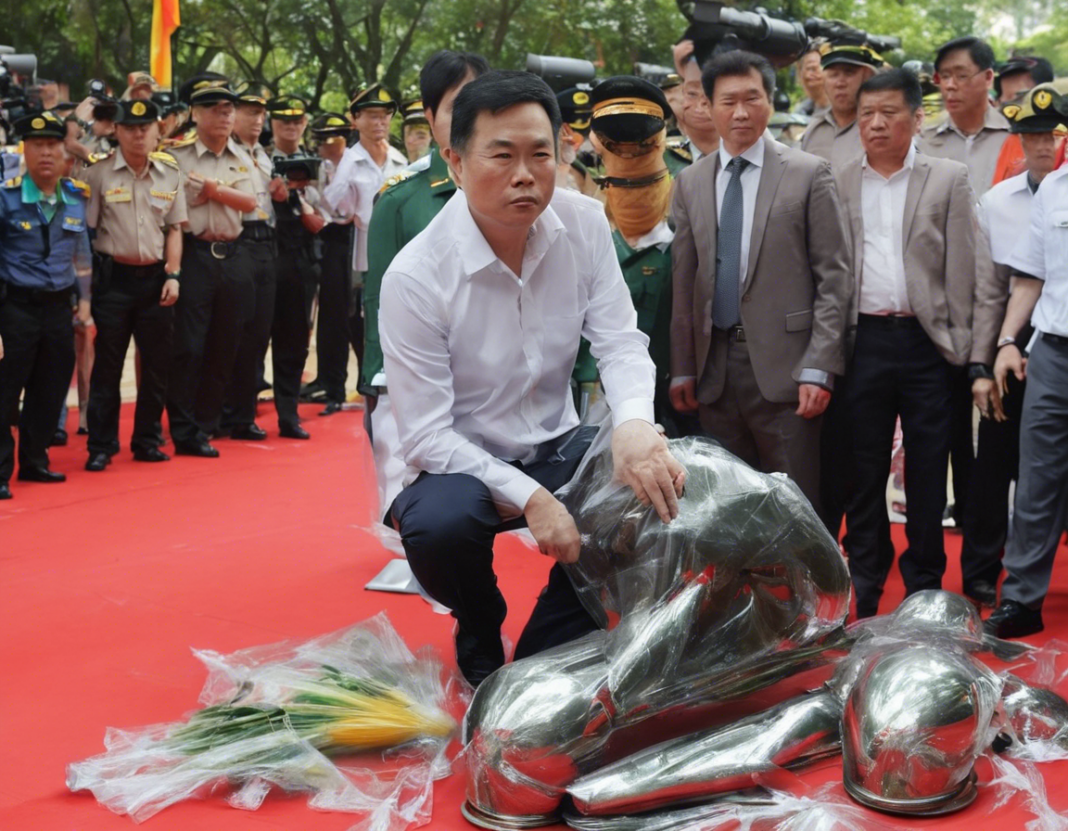Over the past few weeks, news outlets around the world have been abuzz with the shocking story of Vietnamese billionaire and former real estate developer, Phan Van Anh Vu, who was sentenced to the death penalty for his involvement in a high-profile corruption case. The case has not only brought to light the extent of corruption in Vietnam but has also raised questions about the implications of such a punishment for someone of such high status. In this article, we will delve into the details of the case, analyze the implications of the death penalty for white-collar crimes, and explore the broader issues of corruption and punishment in Vietnam.
Who is Phan Van Anh Vu?
Phan Van Anh Vu, also known as “Vu Nhom,” was once a prominent figure in Vietnam’s real estate industry and was known for his lavish lifestyle and connections to high-ranking officials. He amassed a significant fortune through his real estate ventures and was seen as a symbol of success and wealth in Vietnamese society. However, his fortunes took a dramatic turn when he was implicated in a corruption scandal that shook the foundations of the country’s political and business elite.
The Corruption Case
The case against Phan Van Anh Vu stemmed from his involvement in a land plot scandal in the central city of Da Nang, where he was accused of illegally acquiring land and properties through fraudulent means. The scandal, which came to light in 2018, exposed the deep-rooted corruption in Vietnam’s business and political circles and led to the arrest and prosecution of several high-profile officials and business people, including Vu.
The Verdict
In a trial that captivated the nation, Phan Van Anh Vu was found guilty of “abusing power in performance of official duties” and “deliberately revealing state secrets.” The severity of the charges and the scale of the corruption involved prompted the court to hand down the death penalty as a punishment for his crimes. The verdict sent shockwaves through Vietnamese society and raised questions about the efficacy of such a punishment for white-collar criminals.
Implications of the Death Penalty for White-Collar Crimes
The death penalty is a highly controversial form of punishment, and its use in cases of white-collar crimes is particularly contentious. Supporters argue that the severity of white-collar crimes, which often involve fraud, embezzlement, and corruption on a massive scale, warrants the use of such a harsh punishment to deter others from engaging in similar activities. However, critics argue that the death penalty is a disproportionate and inhumane form of punishment for non-violent offenses and that it does not address the underlying issues of corruption and governance that enable such crimes to occur in the first place.
Corruption and Punishment in Vietnam
Vietnam has made significant strides in recent years in combating corruption and improving its business environment. The government has implemented reforms to increase transparency, accountability, and oversight in the public and private sectors and has cracked down on corruption at all levels. However, cases like that of Phan Van Anh Vu highlight the challenges that remain in eradicating corruption entirely and ensuring that those who engage in corrupt activities are held accountable for their actions.
Conclusion
The case of Phan Van Anh Vu and his death penalty sentencing have brought to the forefront the complex issues of corruption, punishment, and governance in Vietnam. While the death penalty may serve as a deterrent for some, its use in cases of white-collar crimes raises important questions about justice, fairness, and the effectiveness of such a punishment in combating corruption. As Vietnam continues its fight against corruption and strives to improve its business environment, it is essential to consider all aspects of punishment and accountability to ensure a just and equitable society for all.
Frequently Asked Questions (FAQs)
1. Is the death penalty common for white-collar crimes in Vietnam?
The use of the death penalty for white-collar crimes is relatively rare in Vietnam. The case of Phan Van Anh Vu is an exceptional one due to the scale of corruption and the severity of the offenses involved.
2. What are some other forms of punishment for white-collar crimes in Vietnam?
In addition to the death penalty, individuals convicted of white-collar crimes in Vietnam may face imprisonment, fines, confiscation of assets, and prohibition from engaging in certain business activities.
3. How does Vietnam address corruption in its business sector?
Vietnam has implemented various reforms to combat corruption in its business sector, including increasing transparency, accountability, and oversight, as well as prosecuting individuals engaged in corrupt activities.
4. What are the challenges in combating corruption in Vietnam?
Challenges in combating corruption in Vietnam include complex bureaucratic processes, lack of transparency, interconnectedness of business and political interests, and ineffective enforcement mechanisms.
5. How can individuals and organizations in Vietnam prevent corruption?
Individuals and organizations in Vietnam can prevent corruption by promoting transparency, ethics, and accountability in their operations, reporting corrupt activities, and supporting reform efforts aimed at combating corruption.

